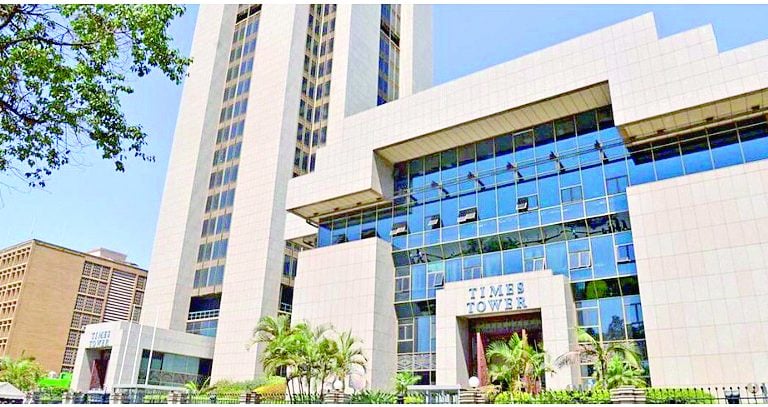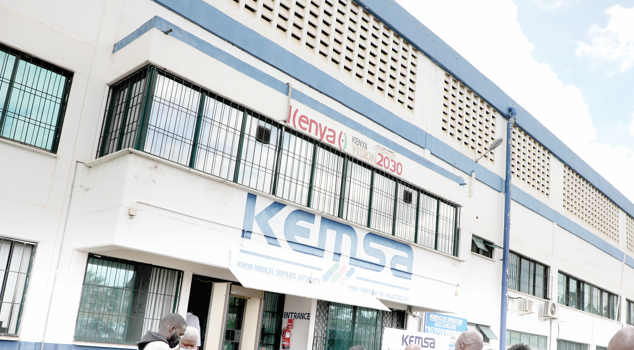KRA flags 21,000 entities for axing over tax delinquency

Kenya Revenue Authority (KRA) plans to deregister 20,981 enterprises to instil compliance through reputational pressure since no business wants to be branded as fraudulent.
This is as the taxman grapples with a widening gap between tax expectations and actual collections, with the underperformance of Value Added Tax (VAT) emerging as a persistent sore point.
The taxman alleges that thousands of registered taxpayers are either failing to file returns or submitting nil declarations, despite evidence of active trading.
According to KRA data, 10,771 taxpayers claimed VAT amounting to Ksh29.8 billion, yet 2,750 of them consistently filed nil returns.
This alone, according to the taxman, resulted in the loss of Ksh4.7 billion in VAT revenue.
Even more alarmingly, invoices worth Ksh35 billion—transmitted by nil or non-filers—carried Ksh5.6 billion in potential VAT, none of which was remitted.
The numbers expose a silent tax evasion culture thriving under the guise of formal registration.
Speaking during a media roundtable in Nairobi on June 10, 2025, Gideon Muhwa, Deputy Commissioner for Micro and Small Taxpayers, painted a worrying picture as he disclosed that 120 newly VAT-registered entities reported taxable sales worth Ksh11.5 billion between July 2024 and April 2025, translating to VAT obligations of Ksh1.8 billion.
However, none of it reached government coffers. “We have a real challenge with VAT as a tax head.
Collections are far below expectations,” he admitted. Kenya’s VAT-to-gross domestic product (GDP) ratio stands at 16 per cent, trailing significantly behind peers like South Africa, which boasts a ratio of 27 per cent.
Despite VAT being embedded in virtually every consumer transaction, it now ranks third among the country’s revenue contributors, behind Pay As You Earn (PAYE) and corporate tax.
Economic activity
“We all encounter VAT at the point of purchase, yet what is collected doesn’t match the volume of economic activity,” Muhwa noted.
In response, KRA has deployed a “VAT Special Table,” a digital ledger naming and shaming non-compliant taxpayers.
As of now, 20,981 entities have been flagged for deregistration. The goal is to instil compliance through reputational pressure—no business wants to be branded as fraudulent.
Efforts to reverse the trend through innovation have seen mixed results.
After the introduction of VAT auto-population—a system that flags discrepancies between purchase and sales invoices—collections grew by 17 per cent in December 2024 and 15 per cent in January 2025.
But the momentum was short-lived.
February saw the rate slump back to 3 per cent, followed by a sharp 11 per cent decline in March after the introduction of the VAT auto-population.
The growth rates improved significantly to 17 per cent in December 2024 and 15 per cent in January of this year.
Auto-population is a system-based solution that detects inconsistencies between purchase and sales invoices that have been declared in the VAT returns filed in iTax.
However, the growth was reversed in the following months, with the rate dropping to 3 per cent in February and significantly declining by 11 per cent in March.
KRA attributes this decline to the impact of missing trader schemes, where entities provide fictitious inputs, which then allow them to benefit unfairly while costing the government tax revenue.
According to the deputy commissioner, these entities also use different people’s documents to register for the process, hence the need for one to constantly verify the data issued before engaging in a transaction.
“So, what we did is we analysed further and noted a very peculiar phenomenon where you will have this taxpayer who is a nil finer. But they have the VAT obligation, yet they will not file, or when they do, they file a nil return,” he explained.
Additionally, the decline of the VAT has been a result of the “payment returns without payment by businesses”, which essentially occurs when a business files for VAT but fails to pay it.
KRA data shows that a total of 1,832 taxpayers submitted returns with sales amounting to Ksh9.5 billion, with VAT of Ksh1.5 billion but failed to make their payments during the period under review.
“Again, that is why we have that decline as we analysed our numbers from our database,” Muhwa stated.
Furthermore, there have also been inconsistencies in the claims where businesses have been filing invoices that are unrelated to their operations, a factor which has also caused the majority of them to be listed on the special table.














